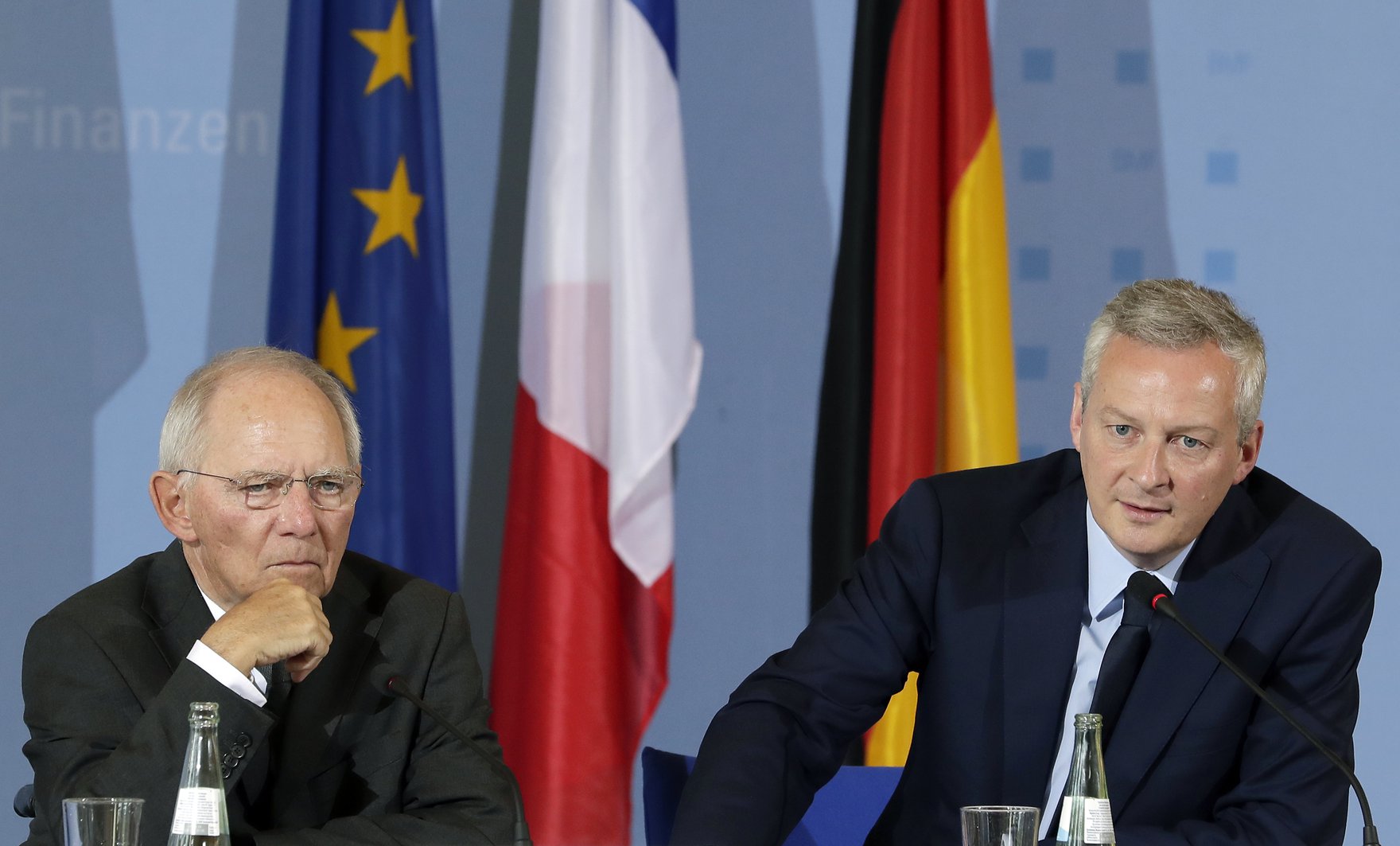Policy makers are scrambling to understand cryptocurrencies and their ability to facilitate illicit financial flows.
French Finance Minister Bruno Le Maire recently announced that France and Germany will present a joint proposal to regulate cryptocurrencies at the Group of Twenty (G20) meeting of the finance ministers and central bank governors in March. Support for such a discussion has been echoed by the Secretary of the US Treasury Steven Mnuchin and the Managing Director of the International Monetary Fund (IMF) Christine Lagarde, among other senior policy makers.
Despite a common view among billionaire investors that cryptocurrencies are a fool’s gold, financial policy makers around the world are concerned about virtual currencies’ potential implications for the global financial system. While a few member nations of the G20 have introduced regulation for cryptocurrency-related activity, the topic has yet to be included in a G20 communiqué.
Central bankers and finance ministers have been discussing the merits and risks of cryptocurrencies for several years. But recent proliferation of uses and abuses of blockchain-based tokens and associated products or services have pushed the issue to a higher priority.
Cryptocurrencies’ possible impact on the global financial system spark three main concerns for policy makers.
Cryptocurrencies Can Facilitate Criminal Activity
The first concern, which is of an immediate nature, is that cryptocurrencies are facilitating criminal activity. The combination of anonymity and borderless transactions means that cryptocurrencies can be exploited for money laundering, the financing of terrorism, avoidance of international sanctions and international tax evasion.
A study conducted by the Center on Sanctions and Illicit Finance and Elliptic, a cryptocurrencies analytics provider, found that while less than one percent of all transactions entering conversion services (such as cryptocurrency exchanges) were clearly identified as illicit activities, this type of activity increased fivefold from 2013 to 2016.
Cryptocurrency-related cyber attacks and fraud have also been pervasive over the past year; hacks of initial coin offerings, exchanges, mining platforms and wallets have cost investors hundreds of millions of dollars. Coupled with concerns over speculative trading, such incidents highlight the need for better consumer and investor protection in cryptocurrency activity.
Cryptocurrencies Pose Risks to Financial System Stability
Policy makers’ secondary concern is the potential risk to financial system stability. Since the launch of Bitcoin in 2009, cryptocurrencies have largely been disconnected from the traditional financial system. As Yves Mersch, a member of the executive board of the European Central Bank, points out, the proliferation of cryptocurrency derivative products — including futures contracts and exchange-traded funds (ETFs) — and their increasing acceptance among investors are creating potential nodes of systemic risk. The cryptocurrency space is changing rapidly; policy makers must be alert to how quickly these assets could become integrated within financial market infrastructure and major financial institutions.
Cryptocurrencies Could Distort the Monetary System
A third concern is the longer-term prospect that cryptocurrencies could distort the monetary system and functioning of the economy. As Christine Lagarde stated, “For now, virtual currencies such as Bitcoin pose little or no challenge to the existing order of fiat currencies and central banks.” But she cautions that this is no reason to dismiss virtual currencies. The world’s largest central banks are taking a similar stance. While confident that cryptocurrencies pose little risk to the monetary system, central banks are actively exploring how blockchain technology can be harnessed to improve the efficiency, stability, accessibility and usability of the financial system.
Since these three concerns carry a different probability of materializing, and because each concern will become relevant at a different horizon, regulatory action is unlikely to be taken all at once.
How Does Cryptocurrency Fit into the G20 Agenda?
The G20 was created in 1999 as a forum for finance ministers and heads of central banks in global systemically important economies to facilitate cooperation on financial and economic policies.
After the September 2001 terrorist attacks, anti-money laundering and anti-terrorist financing have been key focal points of the members’ policy cooperation. The G20 renewed its emphasis on this agenda item during the Turkish presidency of the forum in 2015 and the German presidency in 2017, both countries having recently experienced terrorist attacks.
Given the immediate threat of criminal activity facilitated by cryptocurrencies, and the fact that the G20 already has these issues within its purview, a discussion about the interrelation between cryptocurrencies and illicit financial flows can be expected at the upcoming meeting from March 19-20.
The G20’s efforts have also been highly successful when it comes to financial regulation. In the midst of the 2008 global financial crisis, the G20 was hoisted to the leader’s level and shortly afterward proclaimed itself “the premier forum for our international economic cooperation.” The heads of state and financial policy makers subsequently worked together to develop and implement strengthened harmonized international financial regulation. Their aim was to fill the gaps in the regulatory framework that had allowed the vulnerabilities that led to the financial crisis. Cooperation toward sustaining global financial system stability has remained a central component of the G20’s efforts ever since.
Regulatory guidelines for cryptocurrencies could become an add-on to the G20’s ongoing financial regulatory reform efforts. Given that cryptocurrencies have no legal jurisdiction of issuance and transactions can easily be worked-around jurisdictional boundaries, effective regulation will have to be globally harmonized.
What to Expect from the G20 on Cryptocurrency
The G20 has worked closely with the Financial Action Task Force (FATF) to identify and monitor the implementation of international standards for anti-money laundering and anti-terrorist financing. The FATF has a membership of 37 jurisdictions, including 18 members of the G20; Saudi Arabia has been granted observer status, while Indonesia has not yet been granted membership. The organization has a much wider reach: there is a network of FATF-style regional bodies that promote policy implementation, and 190 jurisdictions have committed to implementing its recommendations.
One of the FATF’s objectives during Argentina’s G20 presidency is to assess the potential uses of cryptocurrencies for money laundering and terrorism financing. While the organization’s report to the 2017 G20 leaders’ summit did not mention cryptocurrencies, the FATF released guidance that provides a robust view of their position on the matter. Specifically, the FATF suggested that international anti-money laundering and counter-financing of terrorism standards be applied to institutions that act as nodes between cryptocurrencies and the financial system — that is, companies that convert cryptocurrencies to fiat currency, such as wallets or exchanges.
Some G20 jurisdictions have already begun introducing such regulation. South Korea now requires transactions on cryptocurrency exchanges to be linked to real-name bank accounts subject to anti-money laundering obligations. And European Union policy makers recently reached an agreement to amend the EU directive on anti-money laundering and terrorist financing so that it applies to cryptocurrency exchanges and wallets.
But regulatory treatment of cryptocurrencies varies widely among G20 member states.
China has taken a hard stance against cryptocurrencies. As early as 2013, Chinese authorities began to clamp down on the use of cryptocurrencies as a means of payment by prohibiting financial institutions from handling Bitcoin transactions and by banning payments companies from working with Bitcoin exchanges. Among other measures, China has since banned cryptocurrency ICOs, frozen bank accounts with ties to cryptocurrency exchanges and shut down exchanges.
Japan has been proactive in creating very open standards for cryptocurrency activity. It has deemed cryptocurrencies as a legal method of payment and issues licences for cryptocurrency exchanges. However, the recent theft of around US$530 million from Japan’s Coincheck exchange — which had not yet received a licence but was legally allowed to continue offering its service — has led Japan’s financial regulators to start clamping down on unlicensed activity.
Many other jurisdictions, such as Canada and South Africa, have been taking a wait-and-see approach to implementing regulatory standards.
Despite differences in approaches to regulating cryptocurrency-related activity, it is likely that all jurisdictions will be eager to make progress on this front. Monitoring the advice of international bodies that work closely with the G20 — including the FATF, the IMF and the Financial Stability Board — will provide the best insights into what these regulations might look like.
While financial policy makers have no immediate concerns over the implications of cryptocurrencies for financial system stability and the functioning of the economy, they are scrambling to identify the potential threats and opportunities from blockchain technology. It is unlikely that the G20 will sit on its hands in tackling this issue, so expect new research to begin surfacing quickly on the potential implications of cryptocurrencies on financial system and economic stability.
In the meantime, finance ministers and central bank governors appear eager to make concrete progress on cryptocurrency regulation at the upcoming meeting in Buenos Aires on March 19 and 20. This issue will also likely remain on the G20’s agenda for the next few years, as Japan — a country both eager to lead in the cryptocurrency space and also currently suffering from its negative implications — will take over the G20 leadership in 2019.



